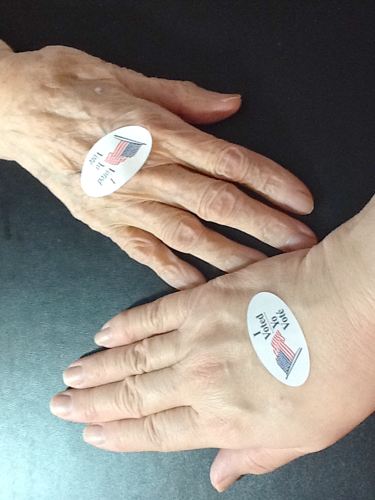Every four years as the presidential election season ramps up, I am reminded of what my youngest brother said years ago when he was in elementary school. “I can be president of the United States, and you can’t!” My memories of that incident are too foggy to recall exactly what triggered this statement, but he definitely was trying to one up me on something we were fighting about.
My brother was right: according to the Constitution of the United States, a presidential candidate must be a natural-born citizen of this country. So, as a 1.5-generation immigrant born in Taiwan, I could become a naturalized citizen but I cannot run for president of this nation. My youngest brother was born after we came to America, so indeed he could run for president.
But even if I cannot seek the highest elected office in this land, I do take very seriously my right – and my responsibility – as a citizen to vote. Throughout American history many have fought long and hard for this right, including women suffragists like Alice Paul.
Our family had met Alice Paul, founder and long-time leader of the National Woman’s Party. One summer we needed to spend a few months in Washington, D.C., because Dad needed to conduct research in the archives of museums and libraries in the city. By chance, we found rental apartments available in the property owned by the National Woman’s Party (NWP) on Capitol Hill. At that time, Miss Paul was in her eighties. We just knew her as “Miss Paul,” the elderly lady who had rented us the apartment and every so often treated us to delicious hot apple pie and ice cream. Only after we grew up did we come to know her historic role in women’s suffrage and how hard she fought for passage of the 19th Amendment. Years later I returned to the Headquarters of the NWP, now called The Belmont-Paul Women’s Equality National Monument. Still standing in the foyer near the front door was the statue of Joan of Arc, which we children used to walk by during that long-ago summer.
Every national election cycle since becoming a naturalized American citizen, I have cast a ballot, in person and a few times using an absentee ballot. I do not take lightly this right to be able to vote; it is our civic duty. And I know it is important to be an informed voter, so I read up on issues at the local, state and national levels and learn about who the candidates are and their stance on key issues.
Voting is a key freedom of life in America; millions of people around the world do not have this freedom. In a democratic system, the opportunity to vote means having the chance to have a say in who elect to represent us and to shape the policies we want as well as the direction we want the country to head.
Because every vote counts, this November I will once again fill out my ballot. It is a right I have earned as a naturalized American citizen and a right that I cherish.

